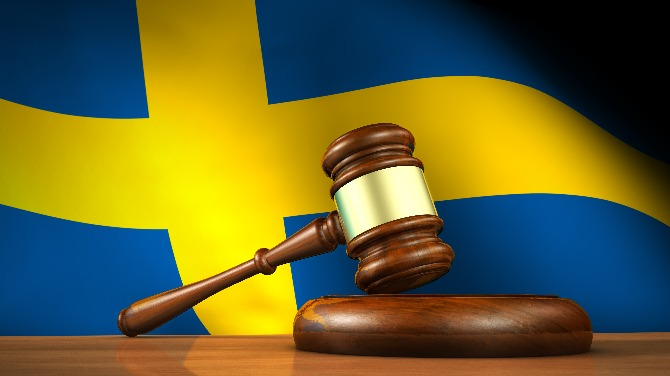POGO Ban Expected to Hit Philippine Economy, Impacting Employment and Businesses
- Flexi Group
- Jul 24, 2024
- 3 min read
Updated: Aug 5, 2024
The recently announced ban on Philippine Offshore Gaming Operators (POGOs) is anticipated to negatively impact sales, earnings, and stock prices of businesses reliant on the industry, while also reducing employment, demand for real estate, and sales for retailers and other businesses in the sector supply chain, an economist said.
In his third State of the Nation Address on Monday, Philippine President Ferdinand Marcos Jr. instructed PAGCOR officials to wind down all POGO operations by the end of the year. This decision follows mounting pressure from officials, lawmakers, and the public due to numerous crimes linked to these operators, particularly those operating illegally.
“Disguising as legitimate entities, their activities have ventured into illicit areas, furthest from gaming, such as financial scamming, money laundering, prostitution, human trafficking, kidnapping, brutal torture, and murder,” Marcos stated.
The president condemned POGOs as a grave abuse of Philippine law, asserting that their operations must cease entirely. He has given the Philippine Amusement and Gaming Corporation (PAGCOR) a strict deadline to shutter all POGO activities by year’s end, while saying the ban was effective “immediately.” Reports indicate this includes all IGL (formerly known as POGO) operations under PAGCOR.
Michael Ricafort, Chief Economist at the Rizal Commercial Banking Corporation, described the potential adverse economic impact of the offshore gaming ban. “The POGO ban could have an adverse impact on the sales and earnings, as well as on the stock price, of some companies that partly cater to or rely on POGOs and POGO-related businesses,” Ricafort noted.
The economist added that the ban was somewhat anticipated and may have already been factored into market expectations, given recent positions taken by local business groups. “The current and previous finance secretaries hinted that it was acceptable for POGOs to stop. China has been appealing for the ban on POGOs for more than five years already,” Ricafort explained.
Ricafort also highlighted that POGO operations had already been reduced since the pandemic. However, he warned of further adverse impacts, such as reduced employment for locals, decreased demand for real estate rentals and leases, and lower demand for retailers and other commercial establishments.
PAGCOR Chairman Alejandro H. Tengco commented to radio DZBB after the decision that he had yet to discuss with the President his directive, as the entity currently only had jurisdiction over Internet Gaming Licensees (IGLs). The office of the President has since confirmed to Philstar that all IGLs will be included in the ban.
Pagcor’s Offshore Gaming Licensing Department has a list of 45 IGLs – previously known as POGOs – two of which are suspended (Gambol Leisure and Amusement Inc. and Tritech Technology Corporation), for a total of 43 operating as of July 16th. Tengco indicated that these 43 IGLs employ 31,000 Filipinos directly. Another 9,800 Filipinos are part of the special class of business process outsourcing (BPO).
Speaking of further impacted industries, Michael Ricafort noted that “suppliers or any other businesses in the supply chain of POGOs could be adversely affected, including rental income, employment agencies, and other related services. Transport and logistics services catering to POGOs could also suffer from reduced business.”
The economist pointed out that the ban aligns with the official policy stance of the Economic Team over the past two years, especially against POGOs that violate laws or contribute to social ills. “This is also good signaling for good governance since global investors prefer countries that comply with ESG standards. Compliance with ESG means signaling good business for the country,” Ricafort emphasized.
“Any gradual ban would only prolong uncertainties, particularly potential legal violations. The ban is part of efforts to further strengthen the country’s institutions and governance standards in line with global best practices.”
Pressure on Marcos to ban POGOs has been increasing in recent months, especially after the Senate investigation exposed several other issues, from fake birth certificates being bought by foreign nationals to suspended Bamban, Tarlac Mayor Alice Guo suspected of being a Chinese spy. Both the Department of Finance (DOF) and the National Economic and Development Authority have backed the banning of POGOs. The DOF has said that allowing POGOs to proliferate is costing the Philippines around PHP99.5 billion ($1.7 billion) a year.
According to PAGCOR data, POGOs generated PHP3.15 billion ($54.3 million) in revenue for the regulator in 2023. Tonet Quiogue, a partner at a Philippines-based law firm and an expert in the legal gaming space, said that PAGCOR will now focus its regulatory and licensing efforts on Philippine Inland Gaming Operators (PIGOs), remote gaming licensees for inland betting, and land-based casinos.
By fLEXI tEAM
.png)
.png)








Comments